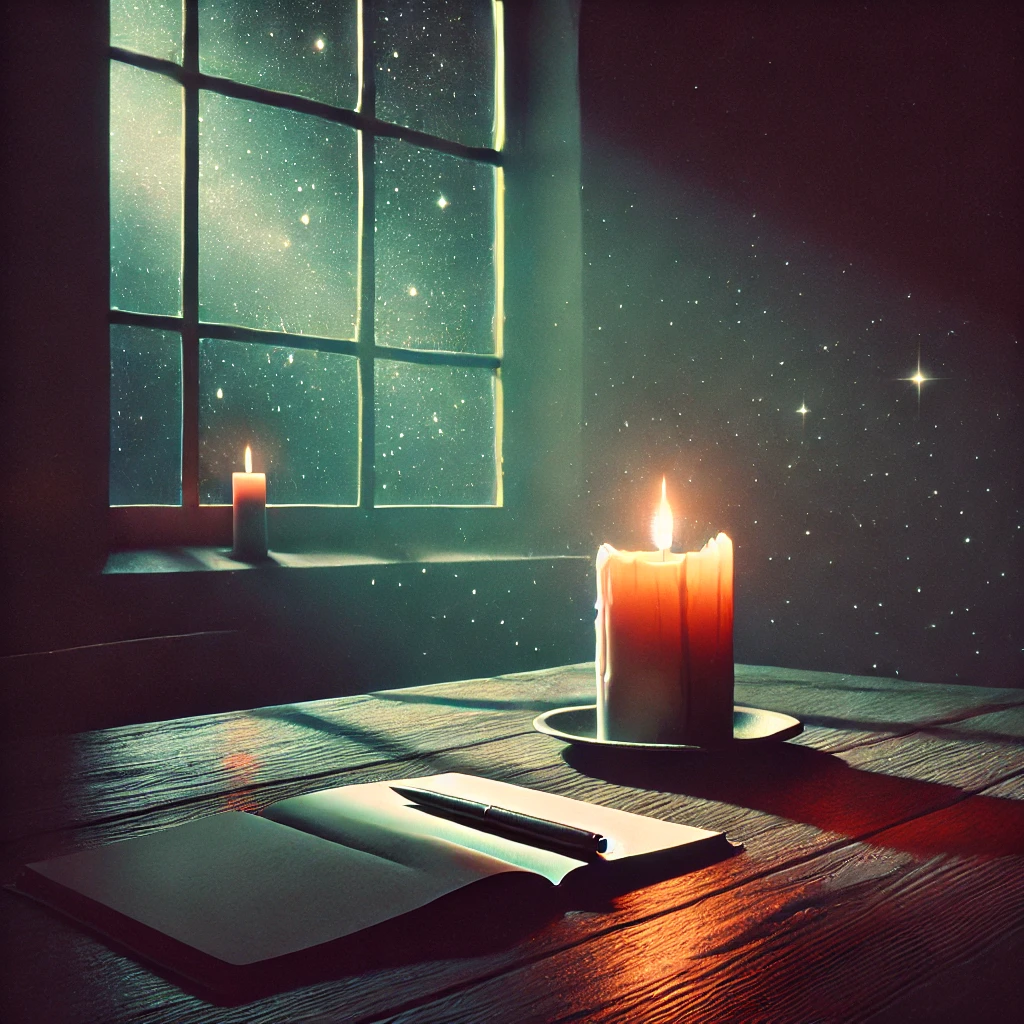This world is full of conflicts and full of things that cannot be reconciled. But there are moments when we can…reconcile and embrace the whole mess, and that’s what I mean by ‘‘Hallelujah.’ – Leonard Cohen

I had known of Leonard Cohen and his iconic song Hallelujah for many years. Like many, I first encountered it through its varied covers, from soaring talent show renditions to soulful tributes. And yet, it wasn’t until recently that I truly discovered Leonard Cohen—not just as a songwriter but as an artist, a poet, and a seeker.
Now, his work feels like a quiet yet profound presence, speaking directly to the questions I’ve carried and the experiences I’ve had—particularly those shaped by my Christian upbringing. Something about his music, his voice, and his words drives so deeply into me. It’s as though he’s giving voice to thoughts I hadn’t yet fully articulated, bringing clarity to the ineffable.
Hallelujah: A Sacred and Broken Song
Hallelujah is more than just a song; it’s a journey. For me, it feels like a mirror for the complexities of faith—its joys, its doubts, and everything in between. Cohen’s exploration of the “holiness” and “brokenness” of a hallelujah resonates deeply, reminding me that spirituality isn’t about striving for perfection. Instead, it’s about embracing all parts of the human experience—the light and the shadow, the triumph and the sorrow.
The song opens with a poignant reference to King David, the biblical figure whose life was marked by both divine inspiration and profound flaws. “Now I’ve heard there was a secret chord that David played, and it pleased the Lord,” Cohen sings, drawing us into the mystery of connection with the divine. Yet, he doesn’t stop there. He immediately introduces tension: “But you don’t really care for music, do you?” The interplay between devotion and doubt sets the tone for the song’s deep introspection.
Cohen once said of the song, “This world is full of conflicts and full of things that cannot be reconciled. But there are moments when we can…reconcile and embrace the whole mess, and that’s what I mean by ‘Hallelujah.’” This perspective captures the essence of what makes the song so powerful—its ability to hold both the sacred and the broken in the same embrace.
Faith, Questions, and My Christian Upbringing
Growing up within a Christian tradition, I was taught to see faith as something steadfast, almost unshakable. The stories of scripture were presented as clear and certain, with little room for ambiguity. Yet, as I grew older and my experiences deepened, I began to encounter the complexity of faith—its shades of gray, its unanswered questions, its moments of both grace and struggle.
Cohen’s lyrics feel like an invitation to sit with these contradictions. His imagery is steeped in biblical references—David and Bathsheba, Samson and Delilah—but he reframes them, weaving them into a narrative that feels profoundly human. The line, “There’s a blaze of light in every word, it doesn’t matter which you heard,” reflects a truth I’ve come to recognize: Divinity is present in both certainty and doubt, in both the holy and the broken.
Listening to Hallelujah now, I hear echoes of my own journey—the questions I’ve asked, the beliefs I’ve wrestled with, and the grace I’ve found in moments of surrender.
Rediscovering Hallelujah
When I listen to Cohen’s original version today, I’m struck by its understated power. His gravelly voice carries a weight of wisdom, as though he’s lived every word he sings. The sparse arrangement leaves space for the listener to reflect, to feel, to bring their own meaning to the song.
Unlike the more polished or pop-oriented covers, Cohen’s Hallelujah feels raw and deeply personal. It’s less about performance and more about a conversation—with the divine, with oneself, with the mysteries of existence. His version doesn’t demand understanding; it invites contemplation.
If you’ve never truly discovered Cohen’s Hallelujah, I invite you to listen with new ears. Let it speak to the questions and experiences you carry. You might find, as I have, that there’s a blaze of Light waiting for you in every word.
The Breath as Hallelujah
Listening to Hallelujah now, I am reminded of the teachings of Norma Delaney (Aandrah), whose guidance in conscious breathing has been a profound gift in my life. Aandrah’s breathwork invites us to melt into ourselves, to release old energies and stories, and to receive the radiant love of the soul. She once said that every breath is a hallelujah—a moment of connection, surrender, and celebration of life’s sacredness.
Cohen’s Hallelujah, like the breath, holds space for all that we are. Each refrain echoes like an inhale and exhale, inviting us to embrace both our joy and our sorrow. Just as Aandrah teaches us to trust the breath to bring us home to our soul, Cohen’s song calls us to rest in the beauty of our contradictions, to find grace in the tension between the holy and the broken.
Norma’s emphasis on “melting” into the spine and core resonates deeply with the refrain of Hallelujah, which feels like a mantra that gently leads us back to ourselves. Both practices—breathwork and the song—celebrate the human and divine, reminding us that every moment, every breath, is an opportunity to allow and receive.
A Reflection on Brokenness and Beauty
What moves me most about Cohen’s Hallelujah is his embrace of brokenness as sacred. Growing up, I often heard stories of redemption framed as triumphs over failure—a linear path from darkness to light. But Cohen’s song suggests something different: that the broken moments themselves are holy, that our flaws and struggles are not separate from the divine but are part of life’s tapestry.
The refrain, repeated like a mantra, becomes an offering: Hallelujah, Hallelujah. Each time, it carries a different weight—sometimes joyous, sometimes sorrowful, sometimes simply accepting. Cohen reminds us that every hallelujah, whether sung in praise or in pain, is equally sacred.
Conclusion: Finding Grace in Contradictions
Leonard Cohen’s Hallelujah has become more than a song for me—it’s a reflection, a meditation, and a reminder of the beauty found in life’s contradictions. His work meets me where I am, offering a sense of understanding and shared humanity that feels rare and precious.
If you’ve never truly discovered Cohen’s Hallelujah, I invite you to listen with new ears. Let it speak to the questions and experiences you carry. You might find, as I have, that there’s a blaze of Light waiting for you in every word.
Cohen developed the lyrics for Hallelujah over many years, sometimes improvising new lyrics during performance. Here is a beautiful London performance:
Hallelujah Lyrics by Leonard Cohen
Now I’ve heard there was a secret chord
That David played, and it pleased the Lord
But you don’t really care for music, do you?
It goes like this, the fourth, the fifth
The minor fall, the major lift
The baffled king composing HallelujahHallelujah, Hallelujah
Hallelujah, HallelujahYour faith was strong but you needed proof
You saw her bathing on the roof
Her beauty and the moonlight overthrew you
She tied you to a kitchen chair
She broke your throne, and she cut your hair
And from your lips she drew the HallelujahHallelujah, Hallelujah
Hallelujah, HallelujahYou say I took the name in vain
I don’t even know the name
But if I did—well, really—what’s it to you?
There’s a blaze of light in every word
It doesn’t matter which you heard
The holy or the broken HallelujahHallelujah, Hallelujah
Hallelujah, HallelujahI did my best, it wasn’t much
I couldn’t feel, so I tried to touch
I’ve told the truth, I didn’t come to fool you
And even though it all went wrong
I’ll stand before the Lord of Song
With nothing on my tongue but HallelujahHallelujah, Hallelujah
Hallelujah, HallelujahHallelujah, Hallelujah
Hallelujah, HallelujahHallelujah, Hallelujah
Hallelujah, HallelujahHallelujah, Hallelujah
Hallelujah, HallelujahHallelujah
You might enjoy this AI generated discussion about A Reflection on “Hallelujah” and the Questions of Faith
